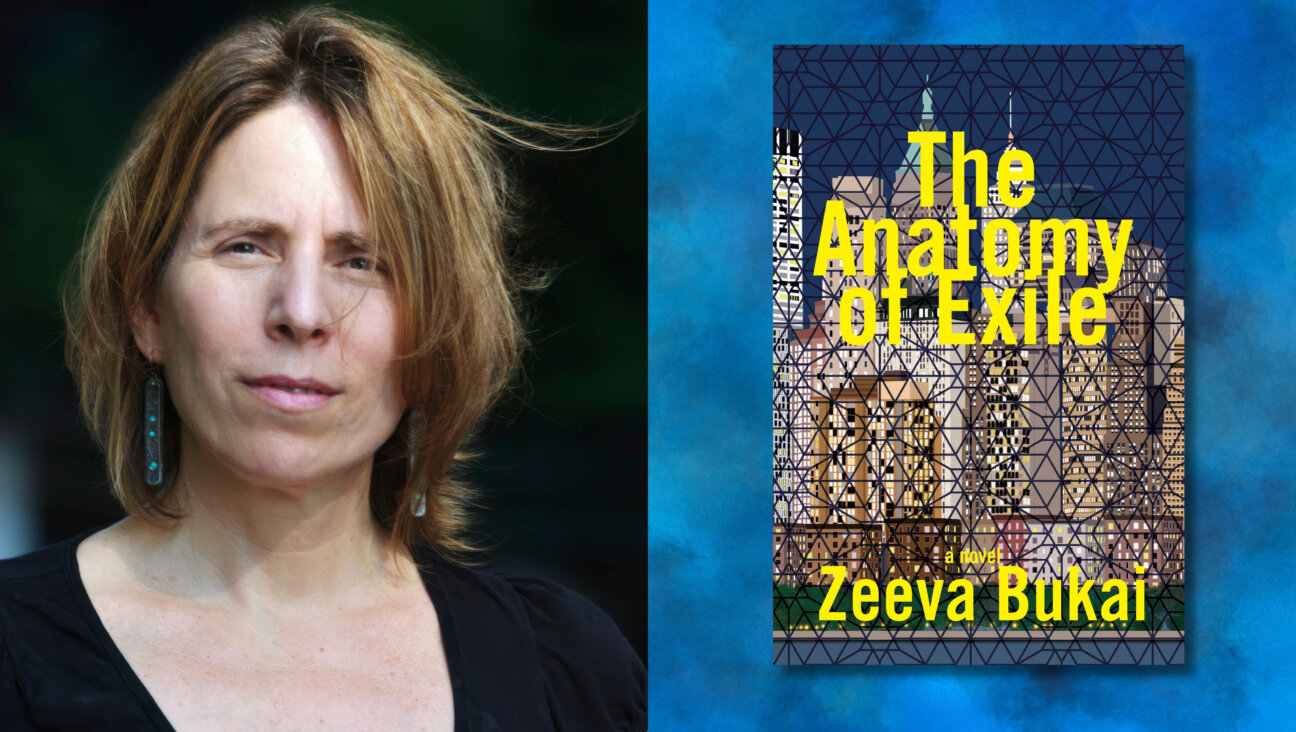Casting Off

Stuart Nadler’s first book, “The Book of Life,” is now available. His posts are being featured this week on The Arty Semite courtesy of the Jewish Book Council and My Jewish Learning’s Author Blog Series. For more information on the series, please visit:

For me, the year has always begun in September. I grew up near Boston, and part of this feeling, surely, is that the season changes then, that summer ends and school begins, that in the stores suddenly there are reminders of what’s to come: Halloween masks, potted burgundy chrysanthemums, pumpkins for sale in bins at the farm stands. Of course, September, in most cases, marks the beginning of the High Holidays. It falls late this year, the bulk of the Days of Awe spilling over into October. As I write this, we’re half a month away, and in New England, there is still the residual film of summer hanging over everything. Rosh Hashanah and Yom Kippur are, perhaps, the most benevolent of all our holidays, a time devoted, in part, to an introspective critique of our sins and misgivings, our failings, the grievances we carry. I took the title of my collection of short stories, “The Book of Life,” from the part of the High Holiday liturgy which has been my favorite since I was young: “On [Rosh Hashanah](https://forward-hcl50.orc.scoolaid.net/schmooze/320610/rosh-hashana/ “Rosh Hashanah”) It is Written, On Yom Kippur It is Sealed.” The stories in my book are about family — about the enduring struggle between father’s and their sons, about the difficulties between brothers. But in a large part, the stories are about the sins and errors we commit against those we love.
Growing up, these were the only services we attended. We weren’t alone. The annex of our synagogue was opened to accommodate those, like us, who still found it necessary to attend. This is the story of so much of the Reform experience this last half-century, a loosening of the traditions, a slackening, a burgeoning secular identity. But it has never been a puzzle to me why these holidays remain so important. There is a solemnity, and a sober holiness to the sight of the bereaved standing among their neighbors to recite the Mourner’s Kaddish. There is the insistence of the Yahrzeit candle, and the sweet symbolism of apples and honey. And there is a certain beauty to the idea that transgressions suffered in private can be absolved in public.
But perhaps the most beautiful of the High Holiday traditions is the one least known by Reform Jews, and certainly, the one least practiced. In Hebrew, tashlikh means casting off. The ritual is a simple one: You take pieces of bread, throw them into the river as if you were feeding ducks, and watch them all float downstream. To do this is to symbolically cast away your sins, to slough off a year’s misdeeds, to start the new year fresh. This comes from the prophet Micah:
He does not retain His anger forever,
Because He delights in unchanging love.
He will again have compassion on us;
He will tread our iniquities underfoot.
Yes, You will cast all our sins
Into the depths of the sea.
I was in my late 20s the first time I heard of this. I was living in Iowa City, a student at the Iowa Writers’ Workshop. I’d moved to the Midwest from Brooklyn, and I had just begun to write the stories that would make up my first book. They were, without fail, about Jewish men struggling to connect to their faith, men struggling to free themselves from the guilt of their transgressions. There is something wonderful about the idea of casting off our sins, washing away a year’s worth of errors. During Yom Kippur, the action is a collective one. We repent aloud for sins, even if we haven’t committed them. One person’s sin is the congregation’s sin. By the time I went down to the Iowa River with a few pieces of bread stuffed into my pockets, it’d been a long while since I’d been to synagogue to celebrate the High Holidays. Ten years. Probably more. But here, on the river, in the grass, a thousand miles from home, I felt compelled to begin to reconnect, to begin anew, to cast off.
Stuart Nadler will be blogging here all week and is currently touring as a part of the Jewish Book NETWORK. For more information about booking Stuart, please contact [email protected].
The Jewish Book Council is a not-for-profit organization devoted to the reading, writing and publishing of Jewish literature. For more Jewish literary blog posts, reviews of Jewish books, book club resources, and to learn about awards and conferences, please visit www.jewishbookcouncil.org.
MyJewishLearning.com is the leading transdenominational website of Jewish information and education. Visit My Jewish Learning for thousands of articles on Judaism, Jewish holidays, Jewish history, and more.
A message from our Publisher & CEO Rachel Fishman Feddersen

I hope you appreciated this article. Before you go, I’d like to ask you to please support the Forward’s award-winning, nonprofit journalism so that we can be prepared for whatever news 2025 brings.
At a time when other newsrooms are closing or cutting back, the Forward has removed its paywall and invested additional resources to report on the ground from Israel and around the U.S. on the impact of the war, rising antisemitism and polarized discourse.
Readers like you make it all possible. Support our work by becoming a Forward Member and connect with our journalism and your community.
— Rachel Fishman Feddersen, Publisher and CEO























